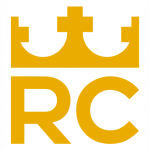

Credits
1.0
This enriched, theoretical and practical course (3-credit hours) is designed to fulfill the course requirements for the College of Registered Psychotherapist of Ontario (CRPO), the Canadian Association for Spiritual Care (CASC), and the American Association for Marriage and Family Therapy (AAMFT). Theological and spiritual reflection in multicultural contexts is encouraged. Lectures, class discussions, practice counselling and interviewing, instructional videos, reflection papers, final paper (AD)
BD/3000 Level Students will be able to:
1) To acquire a basic grasp of the major modalities of family systems therapy from both a theoretical and intervention standpoint.
2) To make useful links between these theories and practices and how they may be interpreted through the lenses of sacred scriptures, pastoral theology, and spiritual care.
3) To reflect upon oneself, in terms of how one’s own family experience may be interpreted through these various theoretical and philosophical perspectives.
4) To consider one’s past and present clinical practice and how these theories and practices may be used to enhance one’s clinical effectiveness.
5) To engage in classroom exercises designed to concretize the modalities and make them more available for practical use.
AD/6000 Level students will be able to:
1) To acquire a depth understanding of the major modalities of family systems therapy from both theoretical and intervention perspectives.
2) To explore significant links between these theories and practices and how they may be interpreted through the lenses of sacred scripture, pastoral theology, and spiritual care.
3) To reevaluate, with greater sophistication, one’s past and present clinical practice and how these theories and practices may be used to enhance one’s clinical effectiveness.
4) To reflect upon oneself and gain greater self-mastery with respect to one’s own family experience in order to enhance one’s clinical effectiveness.
5) To engage in classroom exercises with one’s peers by taking a greater leadership role in the use of these modalities, making them more available for practical use.
A detailed course schedule is available for download.
Week 1
Week 2
Week 3
Week 4
Week 5
Week 6
Week 7
Week 8
Week 9
Week 10
Week 11
Week 12